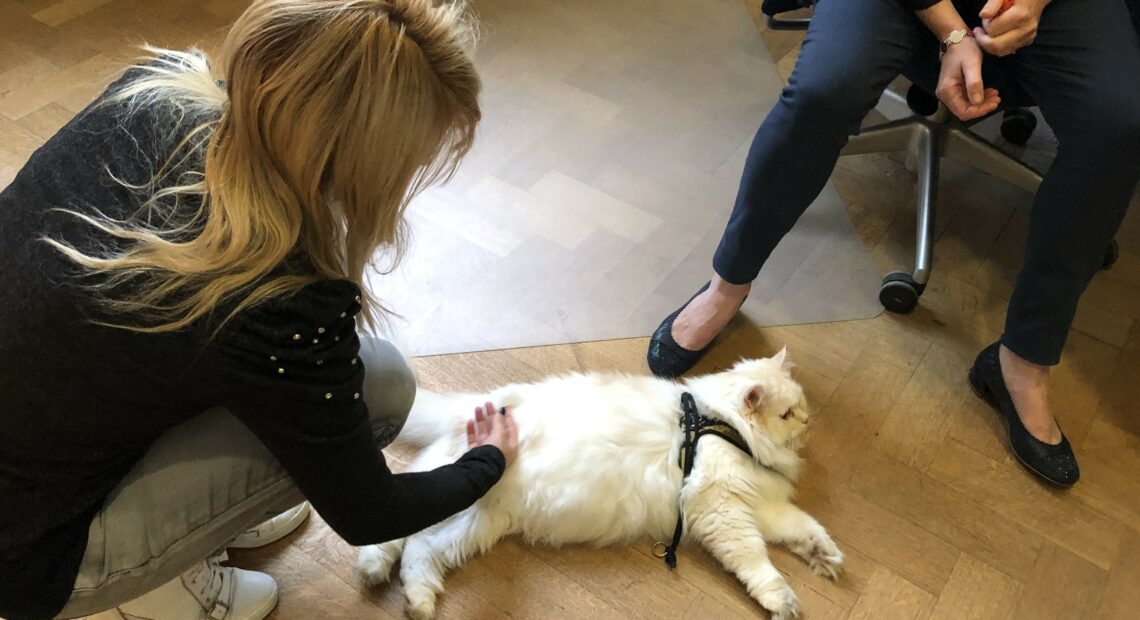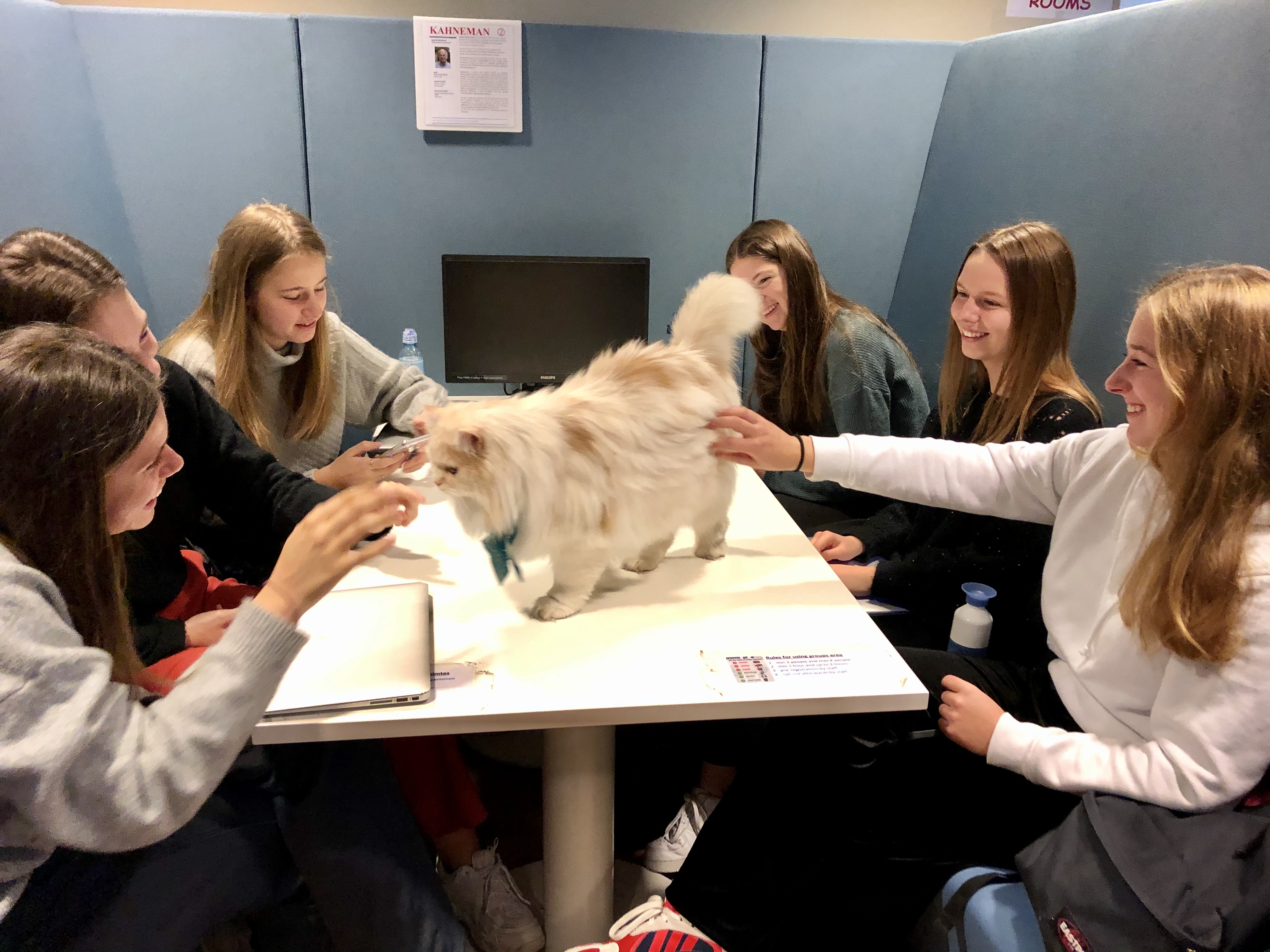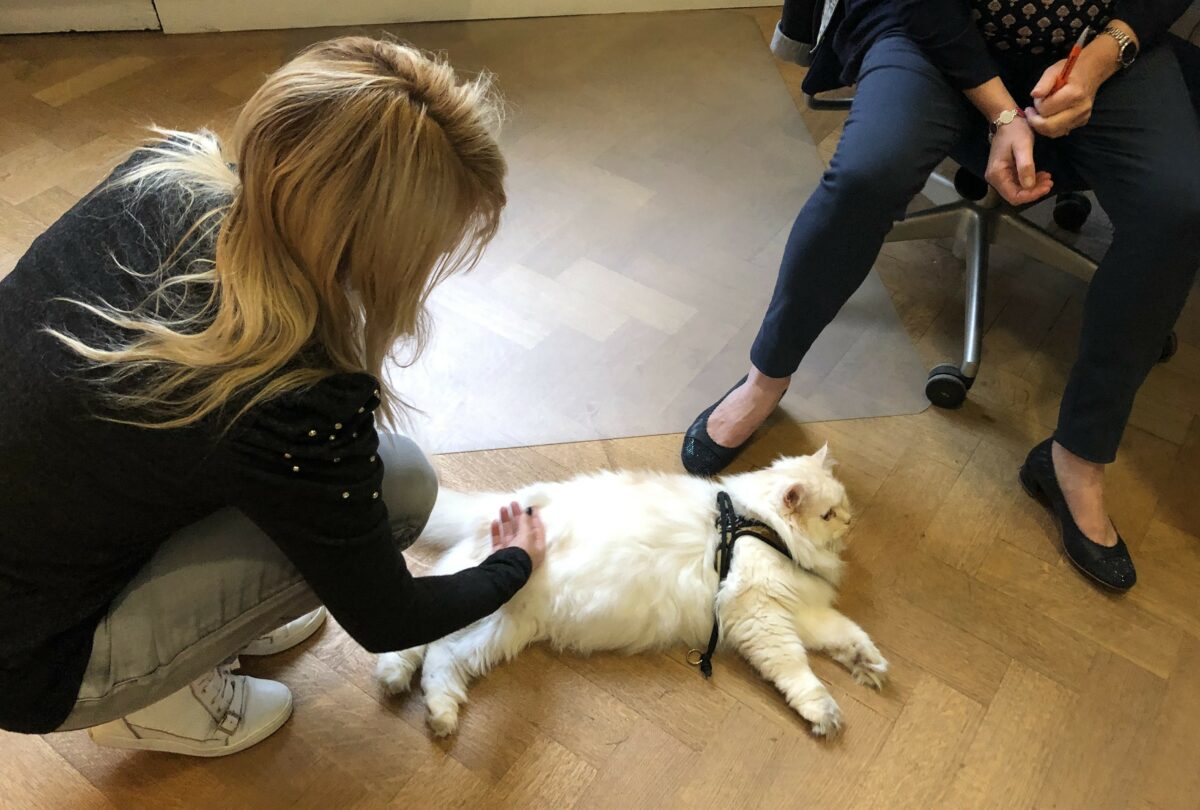
Move over, therapy dogs: Study shows cats might be up for the job
Listen
(Runtime 1:00)
Read
Dogs are among some of the most common service animals in the United States, offering support to people with disabilities, comforting patients in the hospital or even helping college students reduce stress.
A researcher from Washington State University and several other researchers from Belgium recently found that cats with more sociable traits might be beneficial as therapy animals.
“Dogs kind of rule the world of animal-assisted intervention, but this research suggests that there are actually some cats that may also have what it takes to be a therapy cat,” said Pendry, who is a professor in human development at WSU.
After surveying nearly 500 cat owners in Belgium, Pendry and her colleagues found differences in personality traits between cats who did animal assistance work and cats that did not.
“They’re actually quite similar in the sense that they share some behavioral traits with therapy dogs; high in sociability, and a willingness to engage with people,” Pendry said.
One such cat inspired the research, she said.
The study was led by Joni Delanoeije, a postdoctoral researcher and lecturer at KU Leuven in Belgium, who noticed Mando the cat was getting a lot of attention from university staff and students after his owner brought him to campus.
“The owner would take Mando on walks around campus and would be inundated by people interested in interacting with him,” Pendry said.

Mando comforts students as they study at the KU Leuven campus in Belgium. (Credit: KU Leuven)
Mando would frequent campus libraries, lecture halls and classrooms, all while getting lots of pets and attention.
“My colleague, Dr. Delanoeije, became inspired to do this work in part due to her experience with Mando the campus cat,” Pendry said.
Mando is now retired from campus life and lives at home, but he is doing well, Pendry said. He exhibits the kind of friendly traits scientists are interested in studying further as they learn more about what kind of cats could be suitable for therapy and service roles, she added.
“There are quite a few people who are less interested in dogs and want to connect with cats,” Pendry said.
Animal therapy could be expanded to people who prefer cats over dogs as research into the topic expands, she said.
















